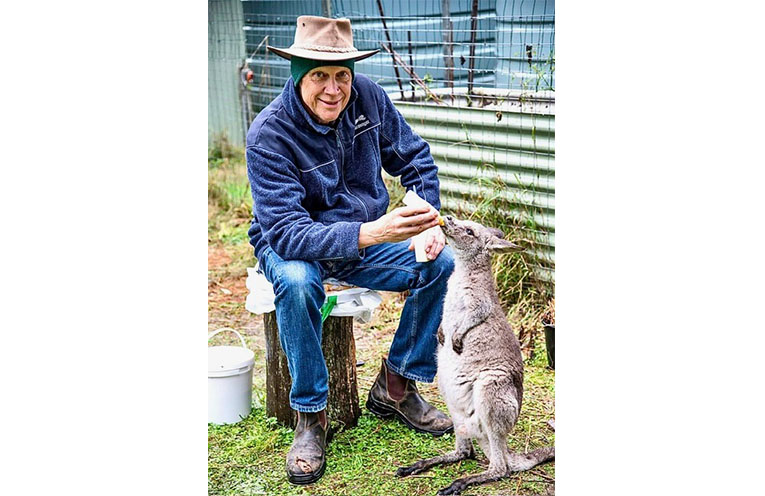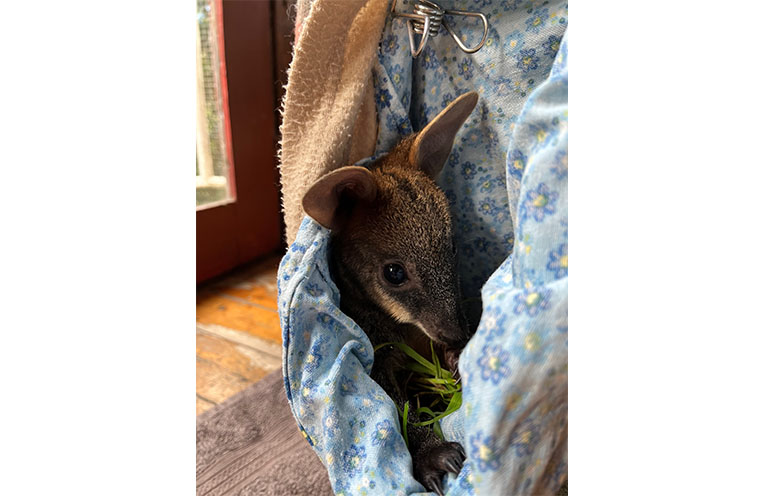
ACROSS NSW, over 110,000 native animals from more than 500 species are rescued annually, according to the Department of Environment and Heritage.
Organisations like FAWNA (For Australian Wildlife Needing Aid), a not-for-profit group, play a crucial role in helping sick, injured or orphaned native animals, which maximises their chances of returning to their natural habitats.
FAWNA is entirely run by trained volunteers.
Graeme Healy has been a volunteer for FAWNA for over 10 years, caring for wildlife on his property in Craven.
“I became a volunteer because I found an injured wallaby, and I had no idea what to do,” he said.
“I didn’t know at the time that there were certain protocols to follow.
“I have [now] raised and released two to four macropod joeys each year, primarily red-necked wallabies, but also swamp wallabies, pademelons, and occasionally wallaroos.
“All were successfully released, and many have been seen later with their joeys.”
Annemie Pelletier, another FAWNA carer, specialises in birds and has been caring for and releasing magpies, kookaburras, and eastern rosellas back into the wild for several years.
“I am amazed at the resilience of animals,” she said.
“I recently cared for a baby bowerbird that I thought would die, but it kept getting stronger.
“It was very exciting to see it grow.”
All FAWNA carers must complete a training course and continue to update their skills and knowledge.
Dominique Jacobs spoke about the delight in caring for wildlife.
“It is a rewarding thing to do. There are so many joyful moments.”
She recounted a moment when a firefighter handed her a smoke-traumatised joey during the 2019 fires.
The animal was small and weak but “became a huge, beautiful wallaby”.
Finding release sites for different species of animals is a challenge for FAWNA.
“It would be great to find people with land who are willing to care for animals,” she said.
“Some carers look after their animals for six to eight months, but there are also opportunities to care for animals just before they are released.”
Annemie, Dominique, and Graeme emphasised the importance of checking a female macropod’s pouch.
“The joeys rely on people to rescue them,” Dominique said.
In addition to caring for animals, FAWNA operates a 24-hour rescue phone line – 6581 4141.
Since 2022, Graeme has been operating the phones most Tuesdays.
“Working the phones is completely different from being a rescuer and carer, but I feel that my experience as a carer has helped me in this role,” he said.
“We need phone operators to help share the workload.
Annemie also finds being a phone operator enjoyable.
“You do need to complete a short training session, but if you can communicate on the phone, even if you aren’t mobile, it’s a great way to contribute to FAWNA,” she said.
WIRES does not operate in the MidCoast Area, so FAWNA is the group to contact when finding an injured animal.
To contact or join the service, call 6581 4141 or visit the website fawna.org.au.
By Wendy BUSWELL




